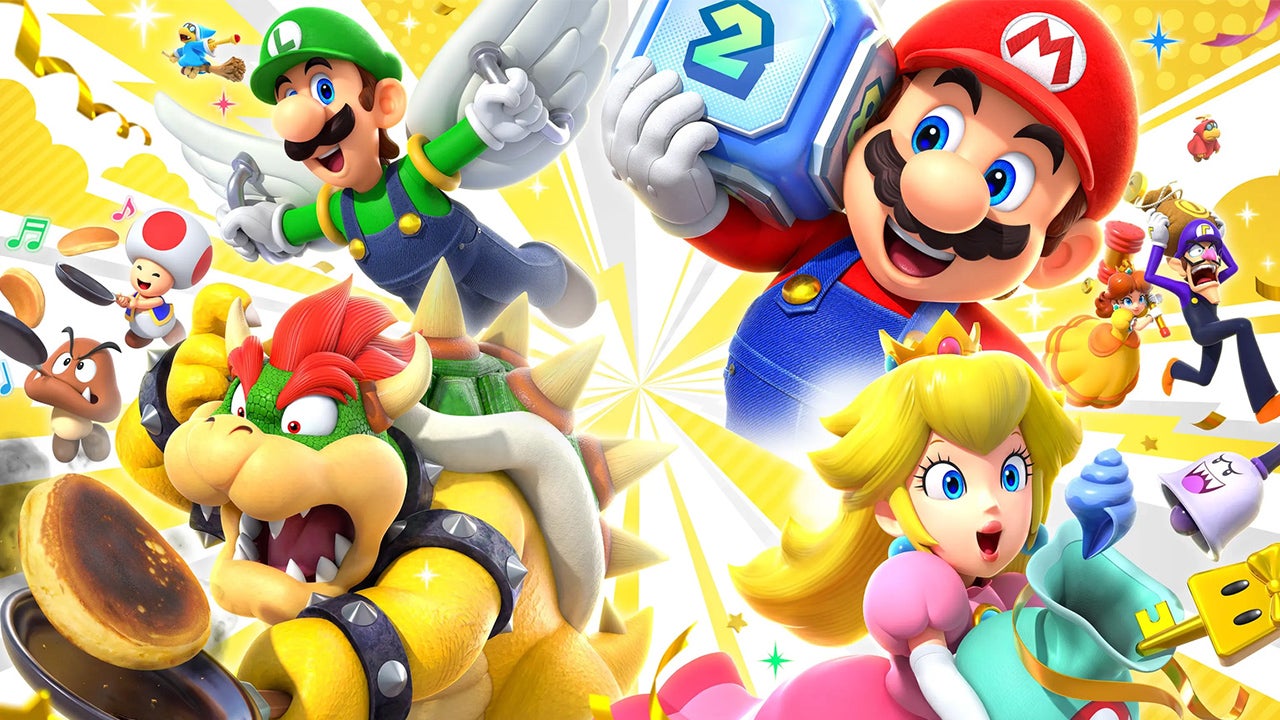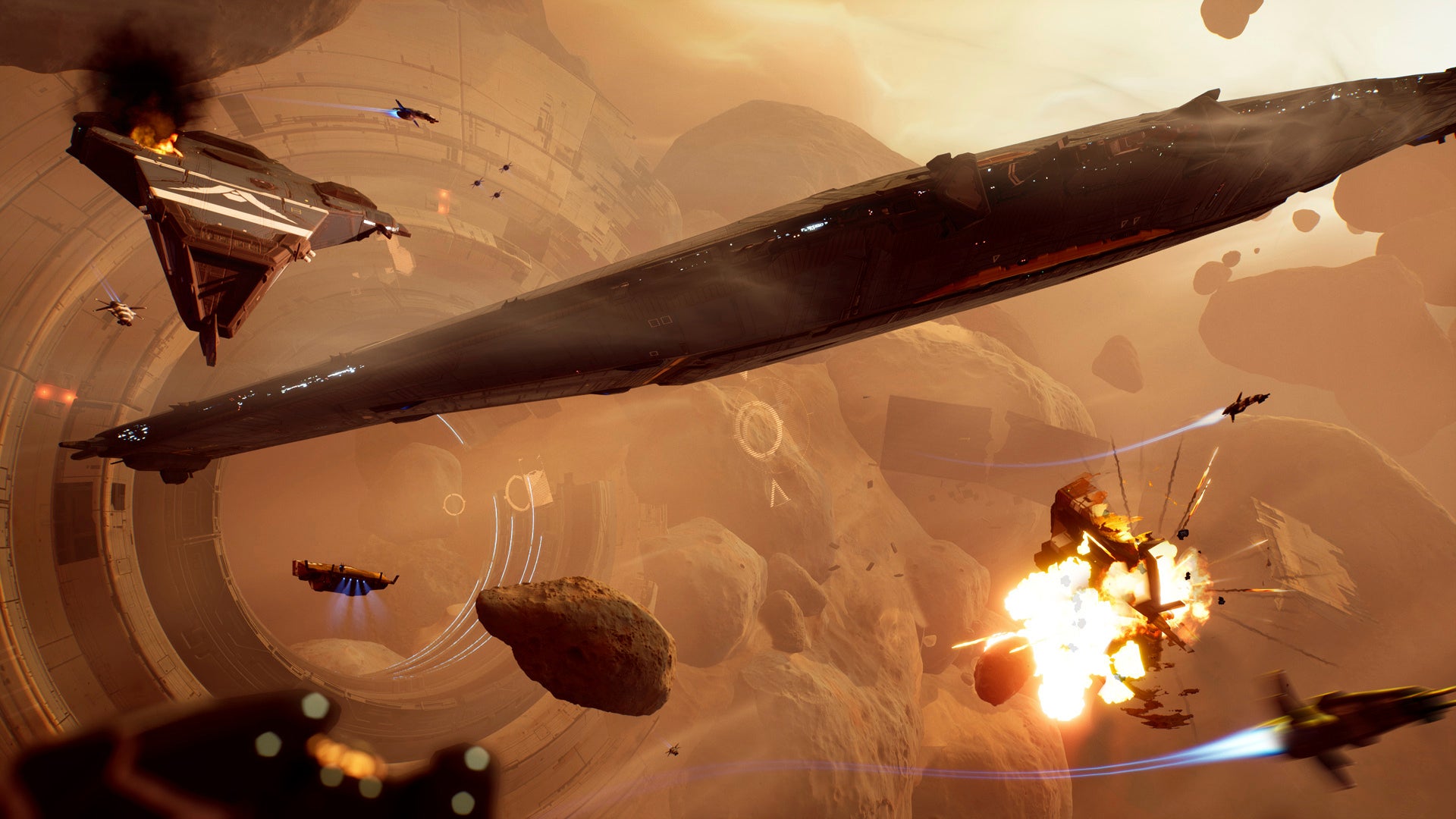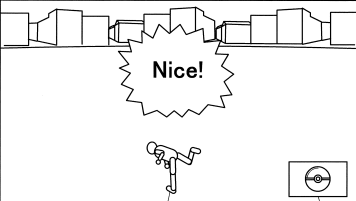Super Mario Party Jamboree kicks off with Kamek welcoming you to a bigger, bolder Mario Party, and it didn’t take long to realize that confident opening statement wasn’t just hype. The latest entry in Nintendo’s 25-year-old dice-rolling, star-swiping bash is not only its biggest, but also one of its best. Jamboree is the true sequel to 2021’s Mario Party Superstars I was hoping for, as well as a faithful followup to the classic Mario Party games from the Nintendo 64 and GameCube eras. In fact, it so successfully iterates and improves upon that tried-and-true formula that it almost feels like Jamboree was plucked from an alternate timeline where Mario Party never lost its way at all.
Superstars was wonderful, but it was also a remake; a greatest hits compilation of fan-favorite boards and minigames from Mario Party history. Jamboree surpasses Superstars by introducing five completely new boards (and two returning ones for good measure) with strategy-filled mechanics that stand shoulder-to-shoulder with the series’ best, as well as a great lineup of fresh minigames with some that celebrate Mario’s history in surprising, delightful ways. It’s also the most flexible Mario Party has ever been, with rulesets that cater to those looking for that trademark luck and randomness alongside new options that make way for more competitive, controlled matches. Jamboree does occasionally struggle with how much it tries to juggle in its uneven side modes, including a noble attempt to introduce more single-player content than ever before that’s still just not as much fun as playing with others, but this is still a triumphant return for the series and easily one of the best multiplayer games on Switch.
This might be the strongest set of boards we’ve ever seen in a Mario Party game. There are seven gorgeous options to choose from – which is already a big improvement over Super Mario Party’s four and Superstars’ five – and they range in quality from pretty good to utterly fantastic. There’s not a single dud in the bunch, each providing unique twists that made playing through all of them with a full group of four a blast. Rainbow Galleria is a shopping mall where recurring flash sales reduce the price of items and Stars, while Goomba Lagoon is set on a tropical island where shifting water levels will open and close branching paths and potentially leave you stranded for multiple turns. Each board’s identity is emphasized further by the return of board-specific items, like Roll ‘em Raceway’s Turbo Dice that let you use a whopping four Dice Blocks in a single turn at the expense of skipping all stops you pass by – including the Star. Every board’s mechanics and items lend themselves to extremely satisfying risk-reward decisions, keeping me on my toes with something new to consider each turn.
The standard item selection is incredibly deep, too. Returning favorites like the Custom Dice Block give you more say in what happens on your turn, while new additions like the Super Dueling Glove let you challenge another player to a duel with a Star on the line. The frankly enormous amount of items in Jamboree make every game feel fresh, and there are so many different strategies available to try and control the chaos that is Mario Party. There’s still a lot that’s completely out of your hands – like randomly-placed hidden blocks that can contain Stars and two Bonus Stars handed out after the final turn – so it’s fun (and often incredibly stressful) to know that a match is almost never over until the results screen. But that’s the essence of Mario Party, and Jamboree completely nails the balance of self-determination and fate that the series is built on. You’ll probably lose some games you deserved to win, and you’ll definitely steal some victories you didn’t really earn, but that’s all part of the fun.
Professional Partiers
If that doesn’t sound like fun to you, Jamboree’s brand new Pro Rules completely reinvent the way Mario Party is played, setting out to replace as many luck-based events as possible with more tactics that make it feel like a highly-competitive tabletop game. Item shops will have limited stock so you have to buy the items you want before they’re gone, the singular Bonus Star category is revealed before the match starts so you can tailor your moves to try and win it, and Star Stops indicate where the Star might go next after the current one is purchased. Plus, rather than minigames being determined at random, all four players vote between three choices to select which contest is played. Those are just a few of the changes that make Pro Rules a much sweatier choice, and I thoroughly enjoyed how different it felt compared to standard Party Rules. Whether you miss the chaos or not will be down to personal preference, but if you’ve been complaining since Mario Party’s inception about how random it can all feel, the inclusion of Pro Rules is Nintendo finally providing an (entirely optional) answer.
And the options don’t stop there. In standard Party Rules, you can play between 10 and 30 turns, toggle Bonus Stars between off, Random, and Classic, choose to select minigames by a vote like the Pro Rules or at random, and turn motion controls on or off. It’s an impressive amount of flexibility that allowed me to fully customize the ruleset depending on the skill level and experience of the people I was playing with. I wish there were a few more things I could tweak (why are 30-turn games the only way to play with three Bonus Stars?), but it’s still a welcome system that truly lets you pick the way you party. You can also play Mario Party online with friends or strangers, and it at least ran perfectly in an online play session hosted by Nintendo ahead of launch. If you only have two friends to play with, the CPUs are perfectly serviceable to fill one or two spots, and setting them to Hard difficulty even makes them competent enough to compete with in a pinch.
Jamboree’s large roster of 22 playable characters also keeps the variety up, and some of the amazing little details that change depending on who you’re playing as elevate the whole package. For example, when I was Boo and visited the Boo on the board to steal an opponent’s Star, they would remark that it was “like looking in a mirror!” Or, when Bowser Jr. swings by Koopa’s shop, he’s welcomed as ”Your Majesty” by the faithful Troopa.
The board game is just half of the equation, though, and Jamboree largely nails its other most important component with an awesome lineup of minigames. There aren’t quite as many in the main Mario Party mode as I’d like – Jamboree boasts over 110 minigames in total, but that includes the challenges from every mode, not just base Mario Party. When you whittle it down, there are just over 50 minigames you could potentially get at the end of each turn, and even fewer if you turn motion control minigames off. This puts Jamboree more in line with older games in the series in terms of minigame quantity, which was mildly disappointing after Superstars spoiled us with over 80 options that could regularly appear.
But the minigames that are here are pretty much all great. Highlights include working with a partner to cut a steak exactly in half, trying to take a photo that perfectly matches up with an example, and surviving as long as you can while dodging endless falling sandwiches. There are a handful of returning minigames, too, with old favorites like Platform Peril and Jump the Gun making a comeback. The motion minigames are even more fun than I expected, and I actually didn’t mind having them in the rotation (other than the fact that when you enable motion control minigames, you’re forced to use the single Joy-Con for the whole match rather than a Pro Controller). The minigame selection doesn’t live up to Superstars’ lineup of all-time classics, but it’s still a big positive, and it’s fun to head to Minigame Bay to play my favorites and set new records.
Watch it, Buddy!
The main new mechanic Jamboree introduces centers on its cast in the form of Jamboree Buddies, which are allies you’ll compete to recruit during longer, more complex minigames. These Showdown Minigames are a complete delight and one of the highlights of Jamboree. Each one celebrates a different character on the roster with clear adoration for Nintendo history: Luigi’s game takes place in a mansion, while Donkey Kong’s is a rhythm game where you bang on bongos. When bringing a Jamboree Buddy around the board, every action you can take is doubled: You can buy two Stars or recruit a Boo twice, but the bad spots are doubled as well, so landing on a Bowser space will have you visit the big guy twice. Jamboree Buddies only stick around for a few turns, so you have to make sure to maximize their powers and character-specific abilities before they leave, adding yet another layer of strategy to the mix.
My only hangup with the Jamboree Buddies is how easy they are for other players to steal. You can fight your heart out in a three-minute minigame to win one, but all it takes is another character passing you from behind to swipe them away once you’re back on the board. Then, at the results screen, the buddy that betrayed you has the audacity to show up waving a flag with your face on it like nothing ever happened. I know what you did, Wario, so stop acting like we’re all good! It was initially frustrating to play such a long minigame that could end up being for nothing, but I eventually got used to watching my back to keep my buddy safe – even if losing them is occasionally inevitable.
Adding lengthy Showdown Minigames has also stretched Mario Party’s runtime seemingly to an all-time high. In the early hours it took my group of four roughly two hours to get through a 15-turn game, though that time will inevitably go down as everyone gets more familiar with the boards and minigames. (And if you have one or two CPUs thrown in and set them to max speed, it shaves off more of the runtime.) A 10-turn game is much faster, but the large size of most of Jamboree’s boards necessitate longer games, and sometimes 15 turns doesn’t even feel like enough. I don’t mind how long these matches take because I’m always having fun, but it’s a big time commitment all the same. Still, I significantly prefer that compared to the watered down Mario Party games we were getting for so many years, and there is an option to save and quit your match and return to it later if you run out of time.
The big new additions in terms of side modes are Koopathlon and Bowser Kaboom Squad, which are online modes that can only be played by one person per system. Both modes are admirable attempts at giving solo players something to do when they’re not playing Mario Party with friends or family, but their quality is a roll of the dice. Koopathlon is a marathon of single-player minigames you compete in against 19 other players simultaneously where you collect coins and race around a track. The mode-exclusive minigames are fun, but there are only nine of them, and I was left feeling like I’d seen most of what Koopathlon has to offer after just a few runs. I’d like to believe Nintendo could support it with DLC updates, but given the complete lack of DLC for the Mario Party series on Switch so far, I’m not holding my breath.
Meanwhile, Bowser Kaboom Squad is a cooperative mode where you work with seven other players online to take down the giant Godzilla-like Impostor Bowser that’s stomping around the map. Collecting bombs and adding them to a cannon gets old very fast, and the cooperative minigames that break up the action are incredibly frustrating when playing with strangers you can’t communicate with. There’s a decent mode in here somewhere if you could wrangle seven friends to play online, but you’d really have to go out of your way to find it. (And at that point, you’d probably have more fun just playing two separate Party matches with full squads anyway.)
Elsewhere on the single-player front, Party Planning Trek is Jamboree’s attempt at a story mode, but it’s very forgettable and simplistic. At least the setup is charmingly meta: You work with Toad and Kamek to set up the five new boards for the party that is about to take place – but this functionally results in boring fetch quests and minigame competitions against mind-numbingly easy CPUs that just feel like a chore. Let’s face it: Mario Party just isn’t that much fun on your own, and it still hasn’t cracked the code here. Thankfully, the whole campaign only takes two hours to complete and is entirely skippable if you don’t care about decorating your party plaza with unlockable cosmetics, so at least it’s not doing much damage.
Jamboree’s final trio of modes all revolve around motion controls to varying degrees of success. Rhythm Kitchen is the clear highlight – I had a blast shaking my Joy-Con to the beat in a variety of adorable food-themed minigames, and it’s the closest thing to Rhythm Heaven Nintendo has put out on Switch. Toad’s Item Factory features some decent co-op marble maze puzzles, but the true bust is Paratroopa Flight School, which uses flapping motion controls that should have been left behind on the Wii. Nothing here amounts to more than a small distraction, but they’re harmless enough that their mixed quality doesn’t detract from how fantastic the main Party mode remains.








